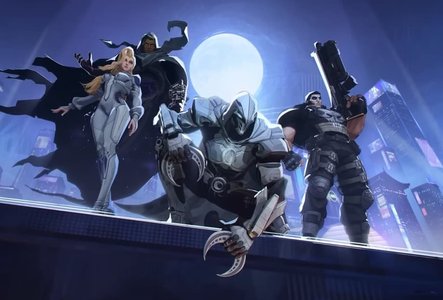[This week, our partnership with game criticism site Critical Distance brings us picks from Kris Ligman on topics including arguments over the "geek" label, social relevance in games, and more.] We begin with a discussion of representation, both industrially and in game content. Evan Narcisse appeals to video games to develop black characters which don't make him cringe:
"Every black superhero face I saw growing up was another signpost that said "Hey, you're welcome here. You can be larger-than-life, too." The absence of such characters [in games] doesn't make fictional constructs hostile; it makes them indifferent, which can be far worse."
G4TV profiles some of the most influential Japanese women in game development. And Shelley Du pays tribute to Final Fantasy XIII character Vanille's accent as a comment on identity and diaspora. Kotaku head honcho Stephen Totilo looks to high-profile women designers both inside and outside of AAA development and asks a pointed question: "What if the Next Generation Thinks Video Games are Stupid?", citing games' struggles to reflect nuanced contemporary issues. Meanwhile, at Play the Past, Mark Sample implies that social relevance is something games have struggled with for a while. In playing through an open source copy of the original Sim City, Sample observes:
"Crime is out of control. There are mobs. There is looting. The National Guard may soon appear. But what's not there is race. The riots in my 1974 version of Detroit are virtually whitewashed. They are riots in the abstract. There are no people involved. Only algorithmically-determined mobs. If one could wish for an idealized riot—devoid of the race and class tensions that have historically been at the root of American civil disturbances—then the riot in my 1974 Detroit is it."
Identity was also a theme for several other writers this week, all of whom were responding to this poorly-received Forbes article by Tara Tiger Brown. Deirdra Kiai writes a personal story of embracing the "geek" label as a child to identify herself, and how easily that lends itself to jealously guarding said label, as the Forbes article does. Leigh Alexander dislikes the "geek" label and argues that the term means nothing anymore. While agreeing with many of Alexander's concluding points, Gus Mastrapa differs by saying he embraces the label because it is a group identity he chose for himself. Over on IndieGames, John Polson profiles Anna Anthropy aka Auntie Pixelante, her role in the independent game scene, and her recent dys4ia as a game by which she shares a personal journey. Another independent game developer, Pippin Barr (The Artist is Present) submitted himself and the Missus to the Painstation, and writes about how the experience brings participants together. And Randy Kalista offers up a fantastic textual reading of the Biblical undercurrents of independent un-game Dear Esther. Thatgamecompany's Journey continues to inspire thoughtful and impassioned responses. One of my favorites for the week comes from the blog Persona Matters, describing how the game's visual rewards system also serves a mythic purpose within the game text. Everyone's favorite woobie Brendan Keogh writes about how companionship makes the game feel lonelier. Showing his professorial side, Michael Abbott offers up an analysis of Journey's Eastern spiritual aesthetics:
"Perhaps Bogost is right when he contends "surely every sect and creed will be able to read their favorite meaning onto the game." […] Thematic ambiguity invites interpretation, but when I play Journey, I see specificity. From where I sit, Journey is the most vivid and succinct expression of dharma and its underlying philosophy of liberation that I've encountered in popular culture. More specifically, Journey elegantly conveys sapta bodhyanga, or the Seven Factors of Enlightenment in Buddhist philosophy."
If you're still craving more, Kyle Carpenter has curated a collection of Journey travelogues at Medium Difficulty. And then there is Journey Stories, a tumblr dedicated to written and visual fan tributes to the game. Speaking of fan tributes, Mike Kayatta has gone ahead and penned a complete Mass Effect fanfiction for The Escapist– in Choose Your Own Adventure style. Dan Bruno discusses at length why Mass Effect 3's conclusion is unsatisfactory. Et tu, Bruno? Segueing back to the part of the internet not dedicated to effecting masses, Tommy Rousse writes on the relationship between "the miniature" and the player:





































